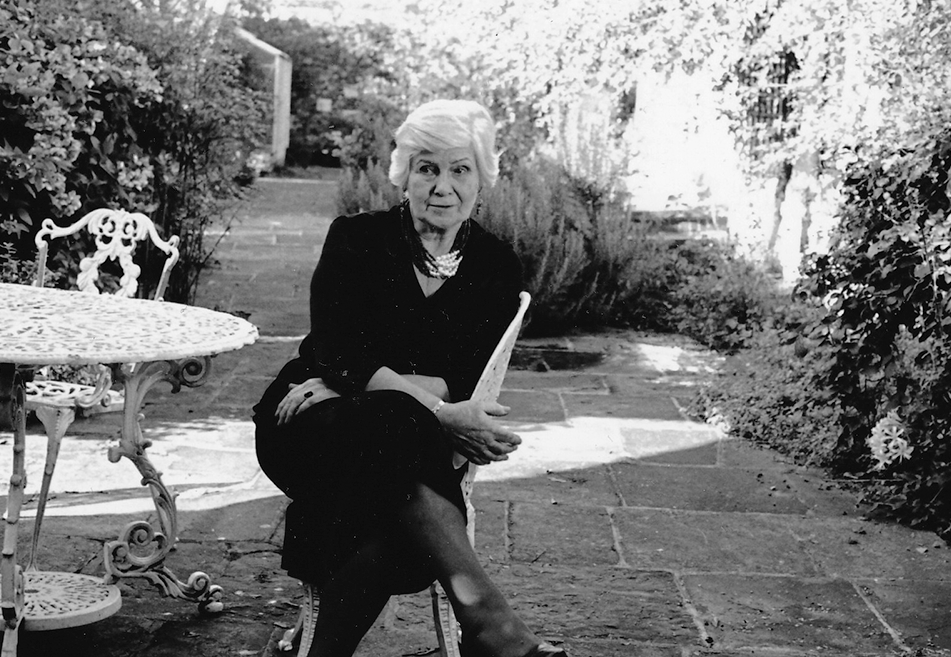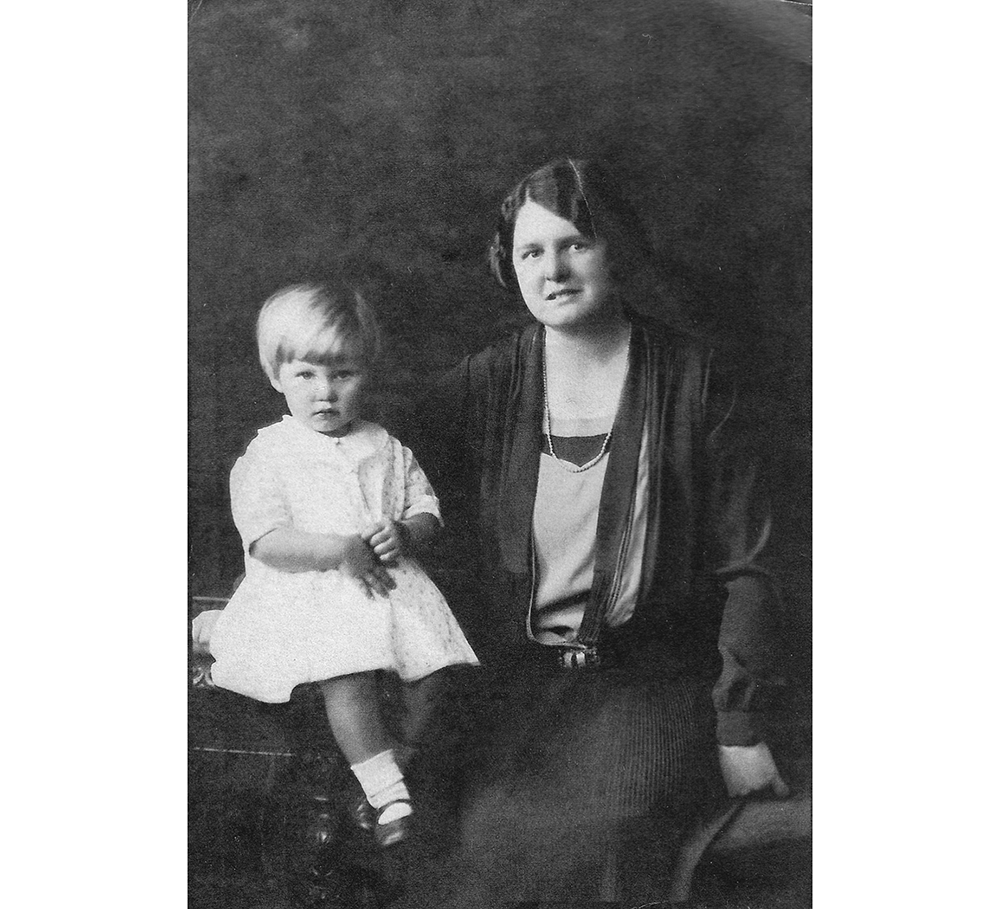Issue 239, Spring 2022
 In the Haven House garden, in the nineties. All photographs courtesy of Jane Gardam.
In the Haven House garden, in the nineties. All photographs courtesy of Jane Gardam.
I met Jane Gardam when she was ninety, at her home in the Kentish village of Sandwich, England. Haven House, where Gardam has lived since 1987, was originally a pilgrims’ hostel and is made up of several medieval structures, but has been modernized over the years and today is graciously proportioned, orderly, and comfortable. The drawing room where we conducted most of our conversations is filled with upholstered furniture, vases of flowers, silver-framed photographs of family, and mementos from the overseas law practice of Gardam’s late husband, David. A fire crackled brightly; the room looked over the large and well-maintained back garden. Once a keen cook, Gardam apologized repeatedly for being unable to make meals for me herself due to a leg injury; instead, a housekeeper brought us tea and sherry and kept an eye on the clock. Gardam had called a nearby Elizabethan inn to see to my accommodation. “It really is a dear old place,” she said.
Jane Gardam was born Jean Pearson in Yorkshire in 1928. After winning a scholarship to study English at Bedford College in London, she married David, a barrister, and later gave up working as a journalist and editor to raise their three children in Wimbledon. Once her youngest child started school in 1970, she began writing furiously: she is the author of thirteen books for young people, ten collections of short stories, a large body of criticism, and nine novels for adults, including 2004’s Old Filth—the first in a trilogy about a barrister who, as the saying used to go, “failed in London, tries Hong Kong”—which became something of a sleeper hit on both sides of the Atlantic. She has won the Whitbread Prize (now the Costa Book Award) twice, and was awarded an Order of the British Empire in 2009. And yet, perhaps because of the sheer volume of her output, her work’s unpretentious spikiness, and her resistance to easy classification, Gardam has never achieved the cozy national-treasure status of some of her contemporaries.
Like her writing, Gardam’s life has had an undercurrent of pain, and she has a resultant toughness. In this interview, which she laughingly declared to be her final one, she did not wish to dwell on the childhood incident that left her hands scarred by burns—at six, she got too close to a fireplace—or on the death of her daughter, from breast cancer, in 2011. Our conversations took place over the course of two days, and were followed by email exchanges and a series of lively phone calls. Gardam’s assistant, Heather Hall, was also invaluable in coordinating our correspondence.
INTERVIEWER
You started to read at a surprisingly young age, didn’t you?
JANE GARDAM
My mother was the one who read to me. She read out loud very nicely, and I would look over her shoulder. I remember the moment when I suddenly realized, Ah, the marks represent sounds! This must be reading! I went to school at five and from then on it seemed to me that the only sensible thing to do was to read and to write things down. But my parents thought I was rather thick, because I couldn’t do maths. I was so inhibited by my father. He was a mathematician and had thought I was going to be a genius at maths. At the school where he was a housemaster, he’d go around saying to the boys, I’ve got a little girl of five at home and she can do quadratic equations, why can’t you? It was a lie. I still can’t, and I certainly couldn’t at five. They hated me, these boys.
INTERVIEWER
He couldn’t have made you more despicable if he’d tried.
GARDAM
He couldn’t.
INTERVIEWER
Was your father anything like the abstracted, preoccupied housemaster in your novel Bilgewater (1976)?
GARDAM
He wasn’t like that, but he was called Bill, and the boys called me Bilgewater. I only discovered that later, and I cried.
INTERVIEWER
You often write from the point of view of a male protagonist. Did it help to grow up around so many boys and young men, just hearing how they talked?
GARDAM
I took a lot of that in, all right. Many of them used to come for extra maths lessons with my father in the evening, and I heard them talking every night around the dining table. With the ones I really liked, I used to make a dash for the door to intercept them. I was wild about half of them by the time I was fourteen. All those boys went to the war. I remember two of them coming back in their uniforms. I was desperate to get away myself and go to university.
INTERVIEWER
Were your parents readers?
GARDAM
Oh yes, my mother was an avid reader, if very undereducated, with a Victorian type of upbringing. She listened to the same stories in church every week—the same Gospels, the same lessons—and heard prayers at home. Reciting prayers was, to her, a form of conversation, and the greatest comfort in times of trouble.
But at home we had only three shelves of books, which were not much good to me. One was of my father’s prizes from school and university. Then there were Mother’s holy books. A few books of romantic fiction. No poetry. The third shelf was mostly just thrillers. I’d read the lot by the time I was very young.

With her mother, Kathleen.
INTERVIEWER
Did you keep journals? So many moments in your books seem as though they could only have come from life and observation.



